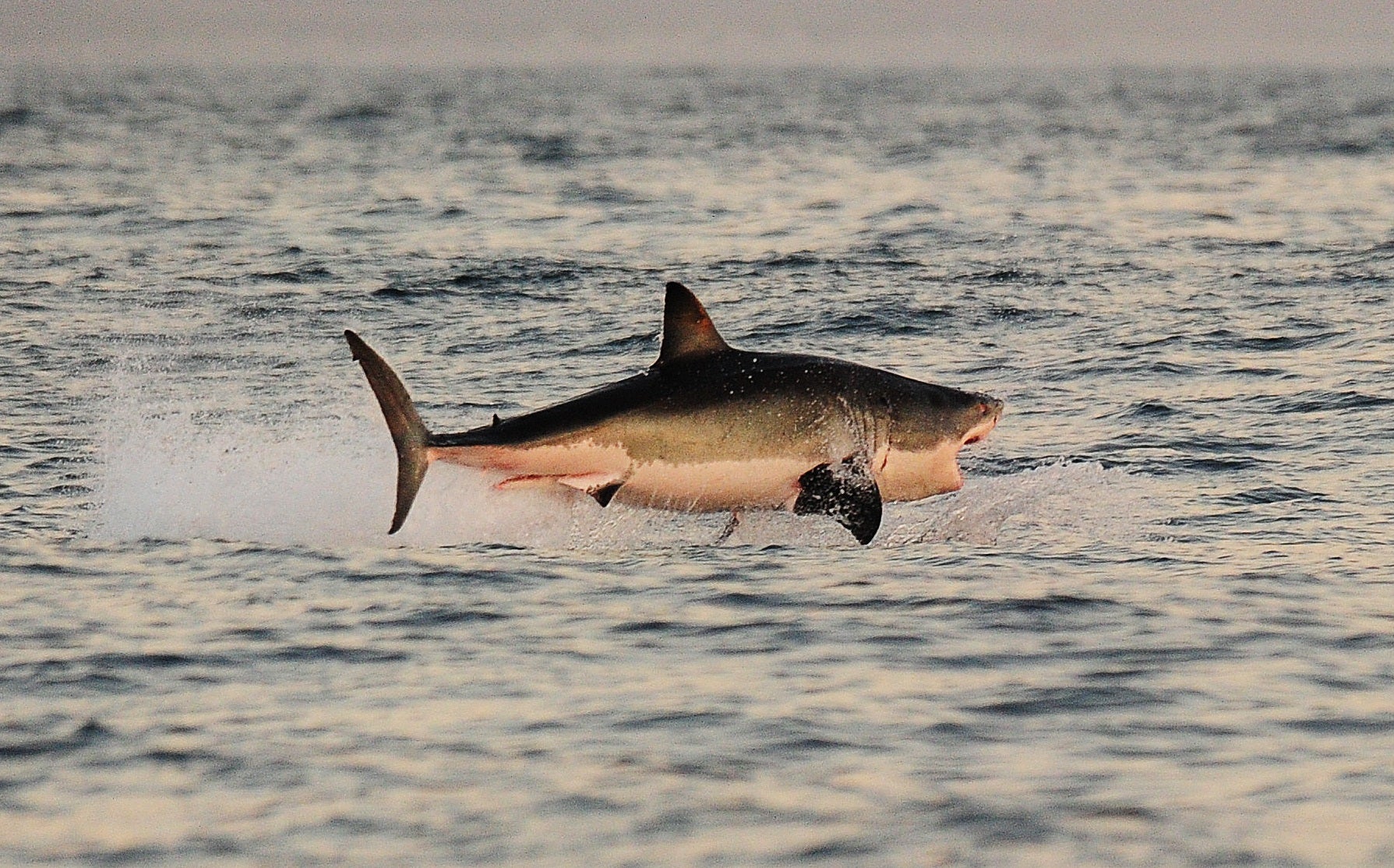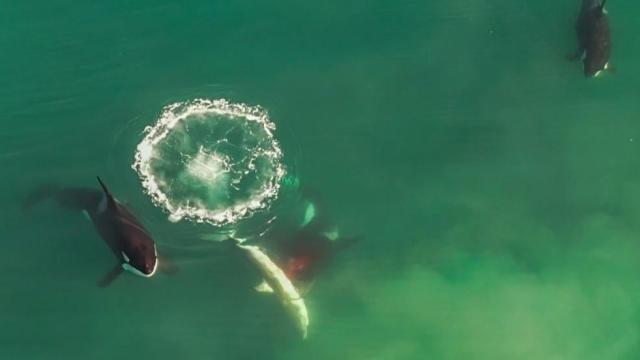Drone footage captured on May 16 proves what biologists in South Africa have long suspected: a group of killer whales (Orcinus orca) is systematically hunting and killing great white sharks off the coast of the country.
Separate observations by a helicopter pilot indicated that two or three great whites were killed by a group of orcas over a 71-minute period. The drone footage shows five killer whales, one of which is Starboard, a male orca previously suspected of killing several great whites alongside an accomplice named Port.
Over the course of the 30 minutes of footage, the orcas are seen pursuing, attacking, and eating the sharks in Mossel Bay, near the southern tip of South Africa. A scientific analysis of the footage is published this week in the journal Ecology.
“This behaviour has never been witnessed in detail before, and certainly never from the air,” said Alison Towner, a senior shark scientist at the Marine Dynamics Academy in Gansbaai, South Africa and the study’s lead author, in an Ecological Society of America release.
Since 2017, eight great white sharks have washed ashore on the South African coast with signs of having been attacked by orcas. Seven of the eight fish were missing their livers, as if they counted Hannibal Lecter among their ranks. Several of the sharks were also missing their hearts.
Great white sharks (Carcharadon carcharias) are apex predators in the ocean; they can grow up to 20 feet long, weigh up to 5,000 pounds, and have several rows of hundreds of pointy, serrated teeth — perfect for slicing into and tearing apart prey.
Towner told Gizmodo in June that orcas probably target great white livers because the organs are rich in nutrients and can account for up to one-third of the sharks’ body weight.
Previous research indicated that the great whites stopped visiting their ordinary haunts once the orcas set up shop. In their absence, bronze whaler sharks — ordinarily prey for the larger great whites — moved in, though orcas also prey on them.
No shark carcasses washed ashore from the filmed attacks, though those desiccated remains were previously the main reason biologists suspected orca predation.

In one compelling moment of the footage, two orcas are swimming near a great white when a third comes up from the depths, pushing the shark to the surface. One of the other orcas then bites into the fish, and a cloud of blood fills the water.
A piece of shark liver — about the size of an orca’s head — is seen floating on the surface, before being consumed by Starboard (recognisable for his collapsed dorsal fin). The researchers believe the orca attack tactic may be a means of opening up the sharks to get at their livers.
Around the same time on the same day, a helicopter pilot witnessed two white sharks being killed by killer whales. Due to the timing, the team suspects the same group of orcas was responsible.
The team believes that cultural transmission (adult-to-adult learning) may be happening here. In other words, an orca like Starboard — clearly well-versed in killing great white sharks — may be teaching others how to take down the apex predators.
The footage affirms what was long suspected: White sharks in the area are running — er, swimming — scared. The greater population trends that could stem from the orca’s behaviour are unclear, but if the hungry, hungry cetaceans keep at it, the knock-on effects will soon be apparent.
More: Horrific Observations Confirm That Orcas Feed on Blue Whales
